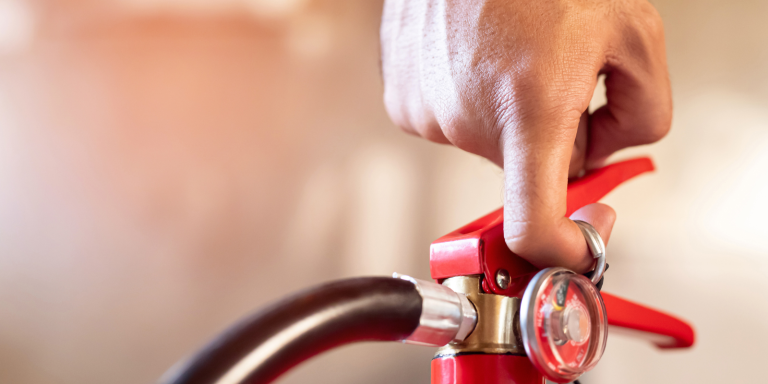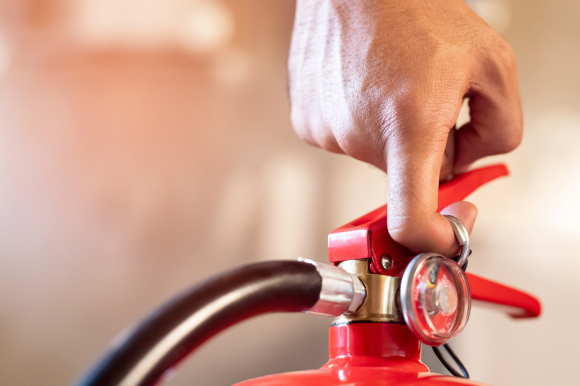Specialised safety devices
Guidance on purchasing, installing and checking smoke alarms; and information on using fire extinguishers and fire blankets to help keep your home fire safe.
Use this space to note any additional information about your escape plan, i.e. who will assist
Smoke is poisonous and more deadly than flames.
If you breathe smoke for more than a few breaths it can kill you.
A house fire can kill you in less than three minutes.
Don't spend time trying to save possessions.
A closed door buys you time.
It slows down the spread of fire, giving you more time to get to safety.
People have died by going back into a fire.
Don't leave the meeting place to go back inside for any reason.


Guidance on purchasing, installing and checking smoke alarms; and information on using fire extinguishers and fire blankets to help keep your home fire safe.
On this page
People who are Deaf or hard of hearing and have hearing and/or speech difficulties can register with Police to join the 111 TXT service(external link). This service is only to be used in an emergency.
This is a nationwide service available to registered users wherever there is cell phone coverage. Registered users can contact the emergency services (Police, Fire and Ambulance) via text messaging on their cell phones.
There are specialised smoke alarm systems available for people who are Deaf or are hard of hearing. These systems are a type of Hearing Assistive Technology (HAT) and include extra features that connect to a smoke alarm such as extra loud and/or lower pitch alarm sounds, flashing strobe lights, or vibrating devices to alert people to smoke or fire in their home
Ideally, you will have hard-wired, interconnected photoelectric smoke alarms(external link) fitted with bed-shakers, strobe lights, pagers or a combination of these. However, this may be too expensive.
At Fire and Emergency New Zealand, we work with partner agencies to make recommendations on this specialised equipment to support people who are Deaf or hard of hearing to have early warning in case of smoke or fire in their home. These partner agencies also have options for applying for funding for the recommended equipment on behalf of the resident. Contact one of the 4 organisations below for advice as to the most appropriate options available for you to consider and to find out more about how to arrange a free assessment of your home for HAT smoke alarm equipment:
|
Free home fire safety visit If you, or someone you know, needs support with general home fire safety advice and/or advice on smoke alarms you can request a free home fire safety check using this online form or call 0800 NZ FIRE (0800 693 473). In the case that someone in the household is Deaf or hard of hearing, then they may require further recommendations for Hearing Assistive Technology equipment, so we will refer to one of our partner agencies who can support. |
If you have a fire extinguisher or fire blanket in your home, you'll be better prepared to put out small fires before they become big ones.
If you have a fire extinguisher in your home, you'll be better prepared to put out small fires before they become big ones.
For businesses, please view our commercial advice on fire extinguishers(external link).
Only use a fire extinguishers when:
Remember, life is more important than property. Don't put yourself or others at risk.
When operating a fire extinguisher, use the 'PTASS' technique:
You should mount fire extinguishers on the wall, out of reach of children.
Place fire extinguishers in noticeable places where they can be accessed safely, such as:
There are many different types of fire extinguishers:
The type of fire extinguisher you need depends on the class of fire you're most likely to experience.
The most likely type of fire to occur in your home is a cooking oil or fat fire in the kitchen. So if you're buying your first fire extinguisher, you should choose one for the kitchen that is capable of extinguishing Class F fires.
A Wet Chemical extinguisher is best for extinguishing cooking oil and fat fires. This type of extinguisher can also be used on most other classes of fire in the home. However, don't use wet chemical extinguishers on fires with a live electrical source.
While an ABE Dry Powder extinguisher is suitable for other types of fire in your home, you should never use it on a cooking oil or fat fire as the pressure from a dry powder extinguisher will cause the fire to spread.
Ideally, you should protect your home against the widest range of fire hazards with both an ABE Dry Powder extinguisher and a Wet Chemical extinguisher.
Home sprinklers will protect your family from the dangers of fire, 24 hours a day. They'll also reduce the amount of damage to your home, in most cases containing it to just one room.
Home sprinklers will protect your family from the dangers of fire, 24 hours a day. They'll also reduce the amount of damage to your home, in most cases containing it to just one room.
Watch the following video to see how effective home sprinklers are at controlling fire: